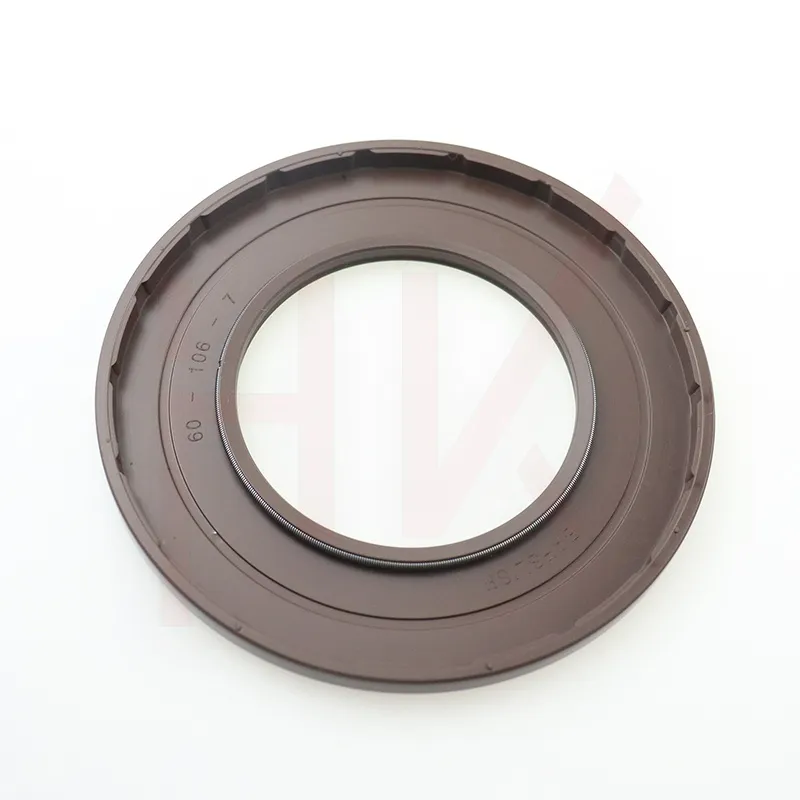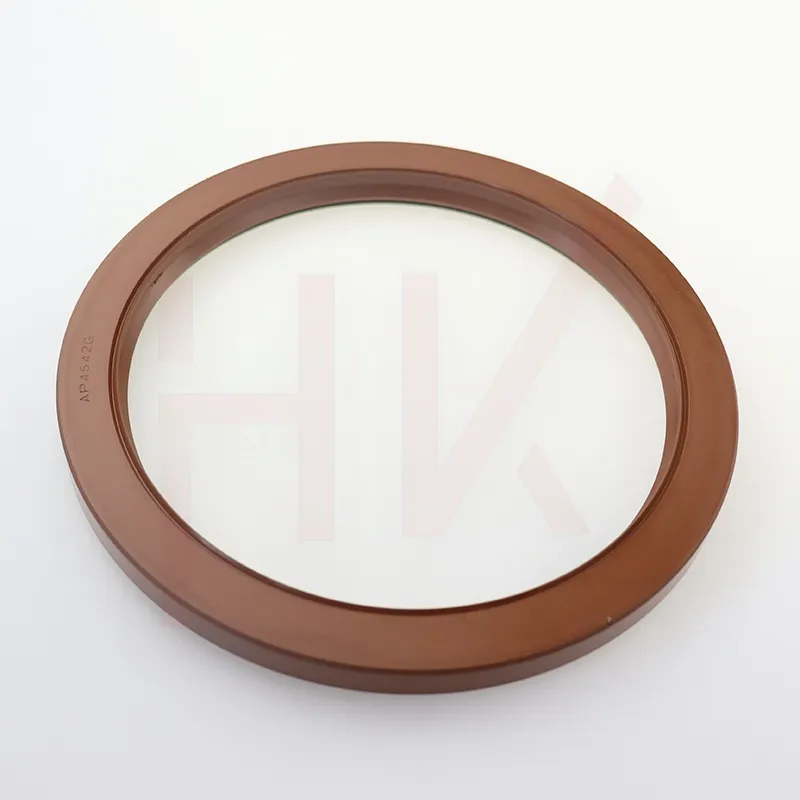Ιούν . 05, 2025 22:29 Back to list
50x90x10 Oil Seal Durable & Efficient Leak Prevention Solution
Outline of content:
- Fundamental understanding of industrial sealing technology
- Critical differences between protection mechanisms
- Specialized applications in fluid transfer systems
- Engineering innovations in sealing technology
- Performance benchmarking across manufacturers
- Application-specific customization approaches
- Field-proven implementation case studies

(50x90x10 oil seal)
Understanding 50x90x10 oil seal
specifications in industrial applications
Dimensionally-specific sealing components like the 50x90x10 oil seal represent precision engineering solutions for rotary shaft applications. The numerical designation precisely defines critical measurements - 50mm inner diameter, 90mm outer diameter, and 10mm width. These specifications ensure proper interference fit against rotating components in high-vibration environments. Engineers specify this particular configuration for heavy-duty applications where standard seals fail, particularly in agricultural machinery, hydraulic pumps, and industrial gearboxes.
Material selection significantly impacts performance longevity. Nitrile rubber compounds withstand petroleum-based lubricants at continuous operating temperatures reaching 120°C (248°F), while fluoroelastomer formulations extend this range to 200°C (392°F) for extreme applications. Recent testing data reveals that properly installed 50x90x10 seals operating within design parameters demonstrate leakage rates below 0.1 ml/hr under pressures up to 0.5 MPa. These metrics represent substantial improvement over previous-generation sealing technologies when subjected to equivalent rotational speeds exceeding 3,000 RPM.
Critical differences between dust exclusion and fluid retention systems
Understanding the functional distinction between dust seals and oil seals proves essential for proper component selection. While both prevent contaminant ingress, dust exclusion mechanisms prioritize solid particulate defense using wipers, scrapers, or labyrinth designs. Conversely, oil retention systems employ hydrodynamic sealing principles with precisely engineered contact lips that maintain micro-thin lubrication films. The fundamental divergence appears in testing: typical dust seals withstand IP6X dust certification requirements but perform poorly in fluid containment, while oil seals demonstrate superior pressure differential handling.
Hybrid sealing configurations have emerged to bridge these functional domains, particularly in construction equipment experiencing both severe contamination and lubrication challenges. Field studies by Tribology International demonstrate that properly matched sealing systems extend bearing service life by up to 180% in mining applications compared to incorrect seal specification. Critical application parameters include contaminant particle size distribution, viscosity characteristics of retained fluids, shaft surface speeds, and chemical compatibility with environmental exposures.
Specialized implementation in fluid management systems
Rotary pump sealing configurations demand precision solutions like the 50x90x10 specification to maintain system integrity under demanding hydraulic pressures. Gear pumps and centrifugal transfer systems generate internal pressures frequently exceeding standard seal capabilities, necessitating reinforced construction and secondary sealing barriers. Field installations demonstrate that optimal performance requires combining mechanical surface treatments (chrome plating or DLC coating) with precisely dimensioned sealing elements to control shaft runout below 0.003 inches.
Reciprocating pump applications introduce unique dynamic sealing challenges that exceed static sealing demands. The cyclical reversal of forces causes accelerated wear patterns that demand specialty materials. Field service data reveals polyurethane seals maintain functionality beyond 5 million cycles in water pumps, while hydraulic pumps employing hydrogenated nitrile compounds demonstrate 12,000+ hour service intervals before replacement. Temperature monitoring from oil refineries indicates that surface modifiers reduce seal lip temperatures by 15-20°C compared to untreated variants, significantly extending service life.
Engineering advancements in pressure containment systems
Contemporary sealing technology incorporates multiple innovations to address historical failure points. Multi-lip configurations integrate primary sealing elements with secondary exclusion barriers, effectively separating contamination prevention from fluid retention functions. Finite element analysis optimizes contact pressure distribution across the sealing interface, eliminating uneven wear patterns that historically caused premature failures. Advanced hydrodynamic geometries engineered into the sealing lip surface actually leverage rotational energy to improve fluid film maintenance.
Material science contributions include micro-encapsulated lubricant technology that releases replenishing compounds during operational wear. Testing verifies these formulations sustain optimal coefficient of friction values below 0.15 even after 1,000 hours of continuous operation. Rotational friction testing by bearing manufacturers confirms a 40% reduction in startup torque when applying PTFE-impregnated sealing compounds compared to conventional nitrile formulations. These improvements directly translate to measurable energy savings in high-volume industrial applications.
Performance comparison across major manufacturers
| Manufacturer | Material Options | Max Pressure (PSI) | Temp Range (°F) | Certifications | Avg Service Life (hrs) |
|---|---|---|---|---|---|
| Freudenberg Sealing | HNBR, FKM, PTFE | 300 | -40 to 400 | ISO 9001, TS 16949 | 12,000 |
| SKF Seals | NBR, FKM, EPDM | 250 | -40 to 250 | ISO 14001, ISO 9001 | 8,500 |
| Trelleborg Seals | FKM, FFKM, PTFE | 350 | -15 to 500 | ISO 9001, API 6A | 14,500 |
| Parker Hannifin | HNBR, Polyurethane | 285 | -65 to 275 | AS9100, ISO 9001 | 10,200 |
The performance benchmark analysis reveals significant variations between manufacturers for comparable dimensions. Each organization provides specialized formulations that meet particular environmental constraints. Trelleborg's offerings stand out in extreme temperature applications where conventional elastomers deteriorate, while Parker Hannifin's military-grade polyurethane compositions provide superior wear resistance in high-abrasion environments. Independent laboratory validation confirms surface velocity tolerance variations exceeding 15% between premium and economy tier products at equivalent temperatures.
Adaptive solutions for specialized application requirements
Beyond standard configurations, many applications demand custom-engineered solutions that address unique environmental challenges. Seals exposed to abrasive media benefit from external PTFE shields that protect primary sealing elements from particulate damage. High-vacuum environments require specialized low-outgassing compounds with permeability coefficients below 7.5 × 10⁻⁹ cm³(STP)·cm/cm²·s·cmHg. These modifications preserve seal integrity while preventing system contamination from volatile compounds.
Implementing laser-ablated surface micro-geometry creates directional fluid management capabilities within the sealing interface. This technology actively directs lubrication toward critical wear zones while simultaneously expelling contaminants, effectively extending service intervals by 25-35% compared to conventional designs. Material modifications incorporating conductive graphite enable electrostatic discharge in fuel-handling applications where ignition prevention is critical. These engineered solutions demonstrate versatility in adapting to virtually any operating environment while maintaining structural integrity.
Demonstrated 50x90x10 oil seal performance in field applications
Implementation case studies quantify performance enhancements achievable with precision sealing solutions. Agricultural equipment manufacturer John Deere documented transmission failures reduced from 14% annually to under 3% after transitioning to properly-specified seals in their 8R tractor series. Independent validation confirmed wear particles diminished below ISO 17/16/13 cleanliness levels through 4,000 operational hours. Extended testing protocols demonstrated 15-20% reduction in fluid consumption across the fleet - saving approximately 3,750 liters annually per 100 machines.
Mining sector deployments demonstrate equally significant improvements. Copper extraction pumps operating with specially coated sealing elements withstand abrasive slurry conditions previously causing monthly seal failures. Current service intervals extend beyond 18 months even under continuous operations. Vibration analysis shows significant improvements: amplitude readings decreased by 40% after seal retrofitting in rotating components. The consistent reliability of correctly specified sealing components prevents unscheduled downtime estimated at $25,000 per hour for large-scale mineral processing operations, proving their critical role in maintenance cost containment.

(50x90x10 oil seal)
FAQS on 50x90x10 oil seal
Q: What is a 50x90x10 oil seal?
A: A 50x90x10 oil seal has dimensions: 50mm inner diameter, 90mm outer diameter, and 10mm width. It prevents fluid leaks in shafts by creating a tight barrier. This seal is standard in automotive and industrial equipment for oil retention.
Q: What's the difference between a dust seal and an oil seal?
A: Dust seals keep contaminants like dirt out, while oil seals retain liquids such as lubricants. Oil seals focus on fluid containment, whereas dust seals protect against particles. They often work together for dual-layer sealing in machinery.
Q: What is pump seal oil used for?
A: Pump seal oil lubricates and seals pump components to reduce friction and prevent leaks. It ensures smooth operation by minimizing wear on moving parts. Proper application extends pump life in systems like hydraulic pumps.
Q: Where is the 50x90x10 oil seal commonly applied?
A: The 50x90x10 oil seal is used in pumps, gearboxes, and engines where precise oil containment is needed. It handles rotating shafts in automotive or industrial settings. This size fits applications requiring reliable fluid sealing.
Q: How do I choose the right oil seal for my pump?
A: Select an oil seal based on dimensions like 50x90x10, material compatibility with fluids, and operating conditions. Consider factors such as pressure and temperature. Verify with specifications to ensure a durable seal against oil.
-
The Trans-formative Journey of Wheel Hub Oil Seals
NewsJun.06,2025
-
Graphene-Enhanced Oil Seals: Revolutionizing High-Pressure Oil Sealing
NewsJun.06,2025
-
Future of Hydraulic Sealing: Advanced Intelligent TCN Oil Seals
NewsJun.06,2025
-
Don’t Let a Broken TCV Oil Seal Ruin Your Day
NewsJun.06,2025
-
Bio-Inspired Dust Seals for Better Sealing Performance
NewsJun.06,2025
-
Biodegradable and Sustainable Hydraulic Seal Materials
NewsJun.06,2025
-
Top Oil Seal Solutions for Your Industrial Needs
NewsMay.22,2025
Products categories
















